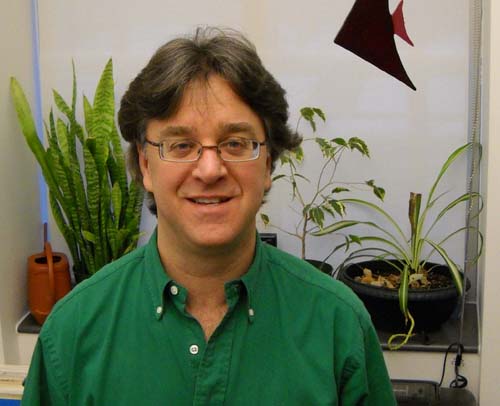
Protecting biodiversity is everyone’s business ─ including businesses, says Prof. Joe Ackerman, Integrative Biology. That’s why he’s joined a fledgling group intended to help companies do their part to protect and promote the variety of life on Earth.
U of G is the only academic member of the Canadian Business and Biodiversity Council (CBBC). It’s intended to help companies learn about biodiversity issues such as conservation and how to incorporate those issues into their operations. The group also hopes to highlight corporate efforts to protect biodiversity, says Ackerman, a member of the CBBC steering committee.
“People are trying to be good in every organization,” says Ackerman, whose research includes work on aquatic biodiversity and endangered species. “The question is how to empower them.”
The two-year-old group consists of government, businesses and non-governmental organizations, including Suncor Energy, Ontario Power Generation, Deloitte, Syngenta Canada, Environment Canada and Ducks Unlimited Canada.
So far, they have published case studies and a corporate guidebook, available on the CBBC website. Now members are writing a biodiversity declaration and planning to hand out inaugural awards to biodiversity-conscious businesses next year.
Ackerman joined the group after meeting its executive director. “Guelph has always had an excellent reputation in fisheries, wildlife and the environment,” says the U of G ecologist. “Guelph, of all institutions, should be a prime leader.”
Reg Melanson, a biologist and Ottawa-based head of the CBBC, says he’s glad to have Guelph represented on the steering committee.
Numerous researchers on campus work on related topics, including biologists at the U of G-based Biodiversity Institute of Ontario. The United Nations declared 2010 as the International Year of Biodiversity.
Companies face two main hurdles in addressing biodiversity conservation, says Melanson. Many lack understanding of the issues and how to help. Others balk at sharing their stories, fearing possible media accusations of “greenwashing,” or diverting attention from environmental problems.
Says Melanson: “A lot of Canadian companies get bashed pretty heavily for lack of attention to environmental issues. But a lot of companies are doing quite a lot.” He points to corporate programs meant to rescue oil-covered seabirds, restore wetlands in Atlantic Canada and recognize green operations on Canadian beef farms.
Ackerman says he might enlist students, perhaps to undertake literature reviews of the topic.
Acknowledging the need for environmental regulations, he says voluntary business participation is often better than a threat of fines or legal action. “Businesses are created by entrepreneurs. When they identify a problem, they’d rather find their own solution than be dictated to by government.”
Melanson adds that other countries are looking at Canada’s experience in order to implement similar groups.